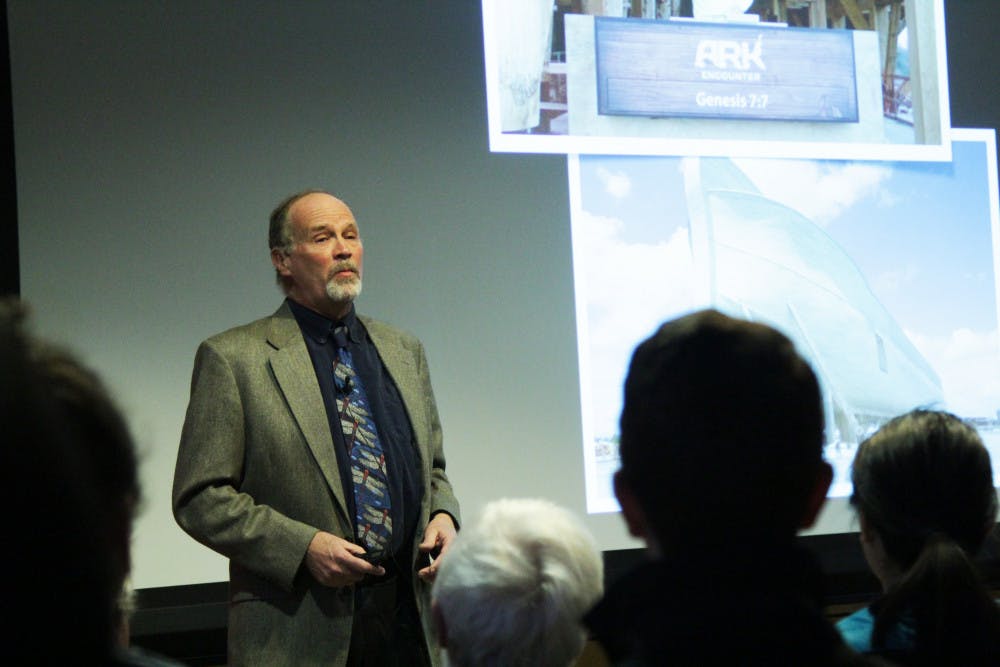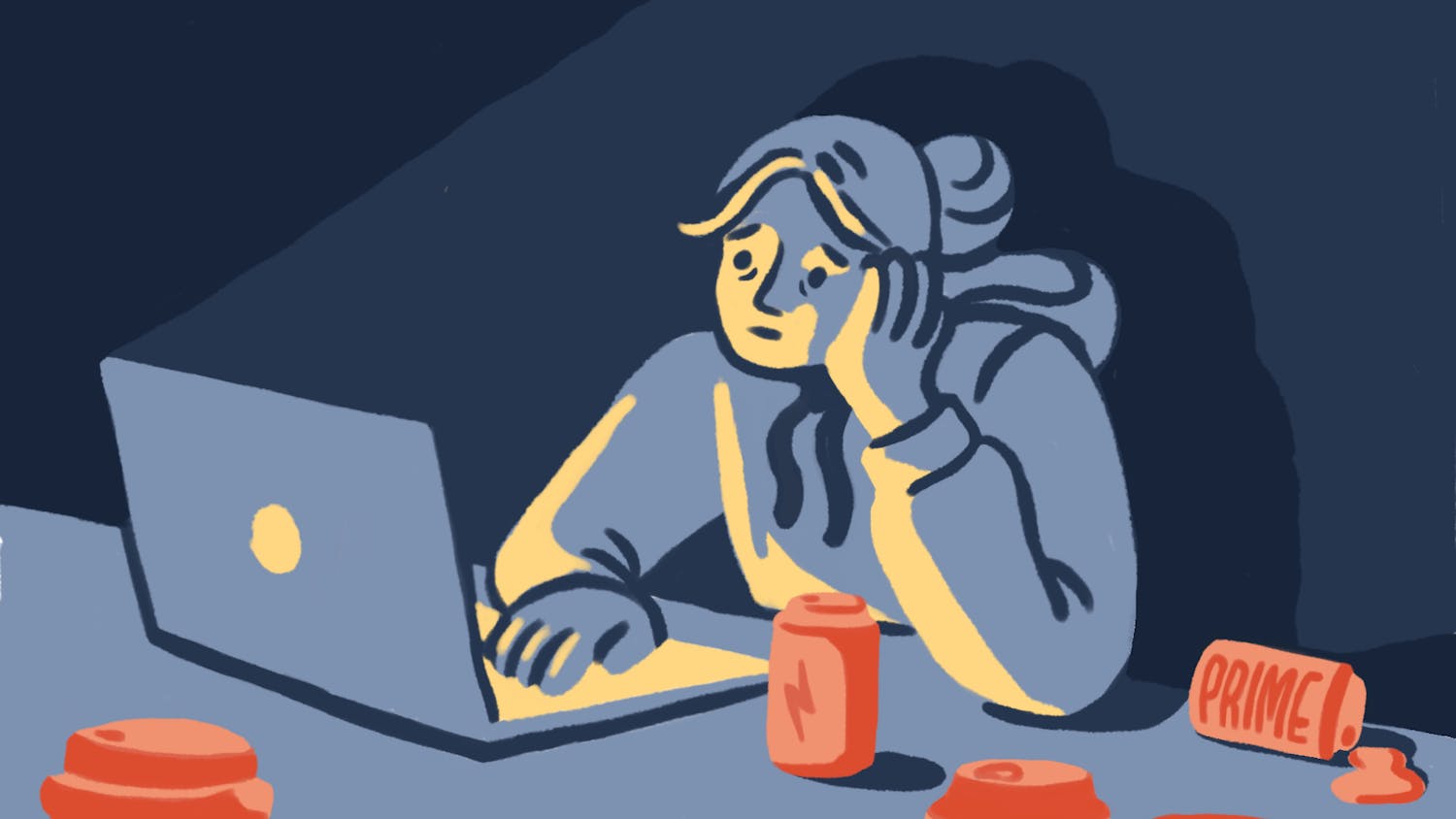As part of the “Reaffirming University Values: Campus Dialogue and Discourse” series, Professor of Biology Ken Miller ’70 examined science denial Thursday, discussing the scientific facts and theories people often disagree with despite overwhelming supporting evidence, such as climate change, vaccinations, genetically modified organisms and evolution.
Miller highlighted the political aspect of science denial throughout his talk, noting that people deny scientific facts on both sides of the political spectrum.“Why is it (that) depicting yourself as anti-science has become a viable political strategy?” Miller asked the audience. “Science is powerful. Science can be misused by people on the right and people on the left.”
Miller argued that on the left, some politicians use scientific denial to impose regulation, while on the right, some use it to oppose regulation. For example, despite overwhelming evidence that GMOs are not harmful to humans, those to the left of the political spectrum call for a ban or regulation of them. Those on the right use a similar denial tactic regarding climate change, despite extensive evidence proving its existence.
In order to fight science denial, Miller proposed a number of solutions. “The reflexive way that most of us in science want to overcome science denial is with a torrent of facts,” he said. But Miller argued against this path, citing studies that show people often become more firm in their opinions when flooded with evidence that contradicts their beliefs.
“Winning people over to science isn’t a matter of facts — it’s a matter of identity,” Miller said. High school teachers, he suggested, should be used as a model for getting people to feel like they are part of the scientific community.
Miller also promoted integrating science into popular culture. He cited the Big Bang Theory and Neil deGrasse Tyson as effective communicators of science and enthusiastic promoters of the scientific pursuit of knowledge.
Miller discussed a number of values that universities should promote as well, such as embracing an “open intellectual culture under which science thrives” and presenting science not just as “a technology but as a genuine liberal art.” A university should also encourage both STEM and humanities students to reach outside of their discipline and expand their breadth of knowledge, he said. “To be ignorant of science is as profound of an intellectual gap as to be ignorant of the literature or the history of our country and its people,” he added.
The event was open to the public and attended by a number of students and professors. Attendee Willoughby Britton, assistant professor of psychiatry and human behavior, said she felt that Miller’s speech ran counter to the other “Reaffirming University Values” lectures because he promoted science as an existing power structure while other lectures have sought to fight existing power structures. “People think that science is an incumbent power structure and feel oppressed by it. (The lecture gave the) complete opposite message than we’re getting from all of the other talks.”
Kristina Eichel GS noted that educational strategies from Germany, where she received her education, allow students to personally interact with scientists more often and could help build relationships with the scientific community.
After the event, Miller described his desire to speak to the Brown community. Speaking to the community is “important because you really want to motivate people to … stand up for science in the university community and also in the real world,” he told The Herald.
To summarize his points, Miller concluded, “The key to winning acceptance of science in the political and economic sphere … is to let people know this is the most exciting time in the history of science and all of us, whether we are professional scientists or not, are and can be a part of it.”





